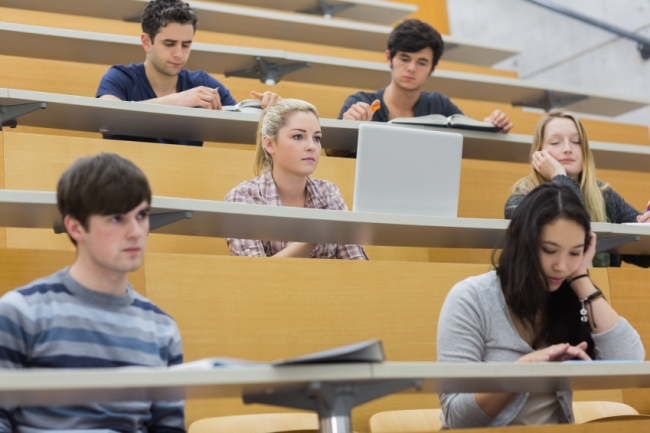You have /5 articles left.
Sign up for a free account or log in.

iStock
Our columnist Joshua Kim asked recently that academics move beyond what he calls the "tired" debate about laptop use in class, spurred by a professor's essay this month in The New York Times. But the topic remains a contentious one, as the large number of commenters on articles about laptop use attest. And it is unlikely to fade as more and more instructors seek to blend digital components into in-person classes.
Several past studies have sought to gauge the impact of students' classroom browsing on classroom performance, with most finding that students play down the impact of their classroom browsing. A new study in Psychological Science from researchers at Michigan State University aims to improve on most past research on students' classroom use of computers and other devices (including their own) by measuring the students' actual Internet usage instead of depending on self-reporting.
About one in six students in a 500-person introductory psychology class at Michigan State agreed to have their in-class browsing activity (confidentially) monitored by logging in to a proxy server, information that the researchers then matched up against the students' self-reported behavior, measures of students' academic preparedness (ACT scores), their professed motivation and interest in the class, and their performance on the cumulative final exam.
The students spent a media of 37 minutes per 90-minute class in what the study defined as "non-class-related" Internet browsing, mostly involving use of social media, e-mail, shopping and watching videos. (The researchers, Susan M. Ravizza, Mitchell G. Uitvlugt, and Kimberly M. Fenn, also logged modest class-related browsing, but it was shown to have no impact on academic performance).
The amount that the students browsed the web for non-academic reasons was not linked to their ACT scores or their motivation, but those who expressed more interest in the class spent less time on their laptops.
While motivation, interest in the class and ACT scores all played a role in students' final exam scores, non-academic use of the Internet significantly predicted students' score on the cumulative final exam, and not in a positive direction. Visits to social media and video sites did the most damage to students' grades (in potentially good news for Amazon, shopping did not significantly lower students' exam scores).
Students, when asked, generally reported their Internet use accurately. And those who thought their Internet use had no effect on classroom learning were not wrong; they both used the Internet less than their peers and scored better on exams than did those who believed their browsing was slightly disruptive. Those who suspected that their browsing was hurting their academic performance were, well, right.
In summing up their findings, the researchers say they revealed a "small to medium" association of in-class non-academic web browsing with exam grades, independent of their "intelligence, motivation to do well, or interest in class material."
They note that the students who used the Internet most for non-academic purposes did so "even though they believe it to be harmful to their learning." For the researchers, that suggests they may be "unable to inhibit" their browsing, raising questions, they said, about the wisdom of "encouraging students to bring their laptops to class when the laptops are unnecessary for class activities."





